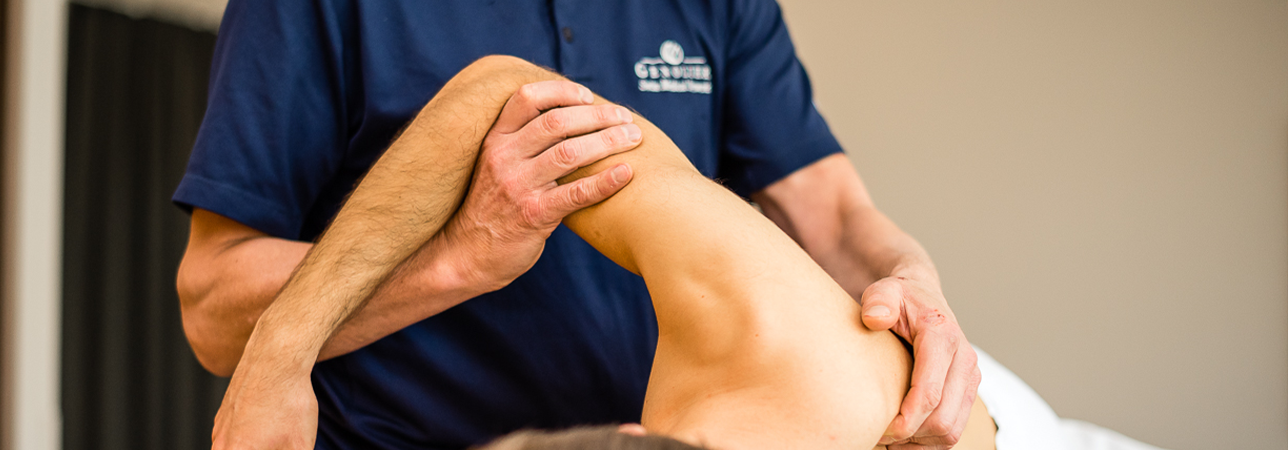close search

Frozen shoulder is a painful condition involving increasingly restricted mobility of the shoulder joint. It usually occurs between the ages of 40 and 60. In some cases, both shoulders can be affected.
In frozen shoulder or arthrofibrosis of the shoulder, the joint becomes increasingly immobile. The condition is divided into three stages:
Although frozen shoulder is very common, the actual cause of the condition is unknown. It is assumed that it may be triggered by previous injuries to the joint.
Frequently, frozen shoulder coincides with diseases such as diabetes, thyroid diseases or arteriosclerosis.
Diagnosis is made using detailed X-rays, sonography and, if necessary, an MRT (magnetic resonance tomography) or CT (computed tomography) scan.
X-rays are taken of various parts of the shoulder, giving an overview of its current condition. Sonography provides information about the condition of the rotator cuff.
Frozen shoulder (adhesive capsulitis) can go away on its own. However, it is not possible to say exactly how long the condition will last and how severe the restrictions will be. There is also no standard treatment. In a study of 230 individuals with the condition, six different treatment methods were examined. The results demonstrated that the most effective treatment is physiotherapy with daily exercises, combined with painkillers.
Cortisone can be used to reduce inflammation. However, this only provides pain relief; it has no effect on mobility.
Cortisone tablets are not very popular because of the side effects. However, when injected directly into the joint, cortisone acts directly on the site of the pain without major side effects.
An operation is only carried out if conservative therapy does not improve the condition of the shoulder. A minimally invasive procedure is used to protect the important tendons of the rotator cuff. During the operation, the joint capsule is opened up and the adhesions and shortening of the joint capsule are loosened. This mobilises the shoulder and restores the function of the joint.
Following the procedure, there are various exercises that can remobilise and restrengthen the shoulder. As early as the day of the procedure, the arm is moved with local anaesthesia, under supervision. After that, the patient is required to perform daily exercises to strengthen the shoulder, but also to prevent knots and adhesions.
The patient can return to work after three to four weeks. Patients who do heavy physical work or who have to move their arms overhead are only allowed to return to work after six to twelve weeks.
It takes six months to achieve full weight-bearing capacity and mobility.
This is not possible. In order to identify whether it really is frozen shoulder, an expert must be consulted. Targeted movement tests must be performed to determine if it is frozen shoulder.
The movements in tennis put enormous strain on the shoulder. It is therefore advisable either to train less or to switch to another sport.